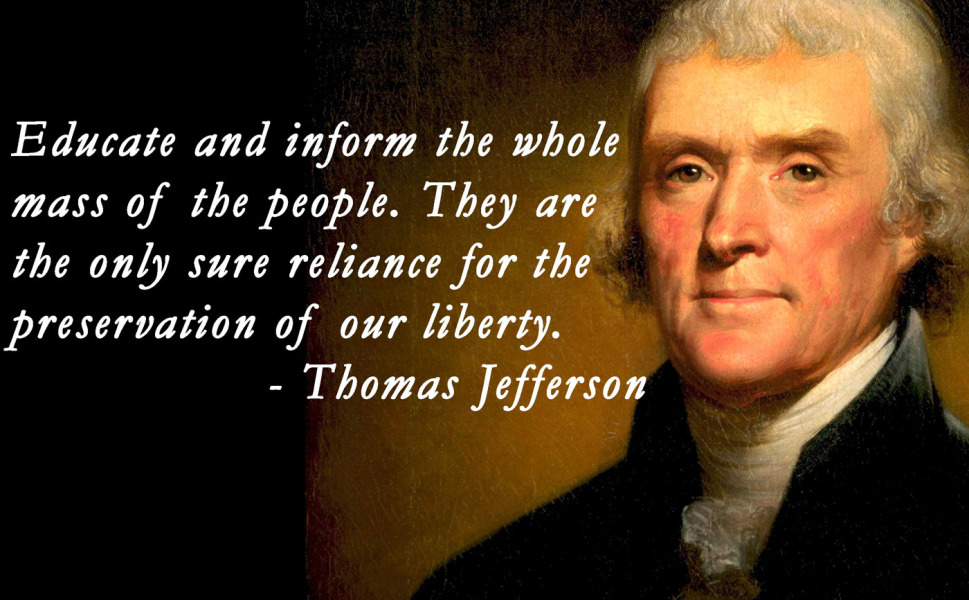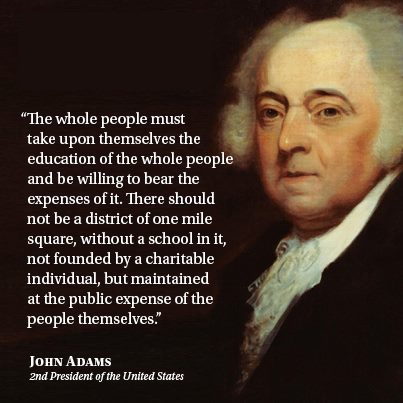A Lesson in Democracy for 9-Year-Olds
It’s John Adams vs. Thomas Jefferson on the third-grade campaign trail. Who will win the election of 1800?


Jessica Primus, a spunky 8-year-old with apple cheeks and almond-shaped brown eyes, ran into the kitchen as soon as her mom walked through the door. “Mom, we’ve got to talk.”
Eve Brensike Primus, a criminal-law professor, knew from the intonation in her daughter’s voice that she wanted to discuss her prep for her elementary school’s simulation of the presidential debates. Eve sat down on a stool at the kitchen island and turned to face her daughter.
Jessica took a deep breath and continued. “On the Alien and Sedition Acts and the size and role of government, I think we’re in pretty good shape,” Jessica explained quickly, in staccato. She was referring to the bills denounced by Vice President Thomas Jefferson but signed into law by President John Adams in 1798—one of which made it more difficult for immigrants to become citizens and sanctioned deporting non-citizens who were deemed dangerous. The other restricted speech critical of the federal government. With her hands, Jessica made circles and sliced the air. “But on slavery … I have a problem.”
Jessica’s third-grade class was scheduled to simulate a presidential debate between the candidates of the election of 1800—John Adams and Thomas Jefferson—and she wanted to cover all her bases. Even the odious ones. “Mom, I’m Jefferson—and I own slaves. It’s so … bad.” She hung her head. “How can I justify that?”
Eve had been teaching her law students at the University of Michigan the Socratic Method for more than a decade. Now it was time to apply it to help her daughter think through this challenge. At Jessica’s school, the Hebrew Day School in Ann Arbor, Michigan, presidential debates are taught as something you do, not watch. Election simulation encompasses every step: primaries, campaigning, conventions, debates, elections, and inauguration. And teachers say this technique has proven especially effective during this presidential election cycle. “Turning to the debates of an historical election has allowed my students to think for themselves,” said Laura Pasek, a third- and fourth-grade general-studies teacher. “Rather than recite back what adults think of Trump and Clinton, they’re thinking on their feet about the issues.”
To help Jessica understand the other side of an argument, Eve drew from a modern example. “Remember when you watched [Usain] Bolt run a really hard sprint in the Olympics?”
Jessica nodded.
“What would have happened had he run another sprint right after that?”
“He would have gotten tired—and might have lost!”
Now, her mom nodded. “Given that the United States had just finished a war to gain independence from Great Britain, what would have happened had their politicians pushed to end slavery? … If we’d just finished fighting one war,” she continued, “we wouldn’t have wanted to fight another.”
“And if you’d abolished slavery?” Jessica started to think aloud. “The South would Elementary-School Students Learn Civics Through Role Play - The Atlantic:
